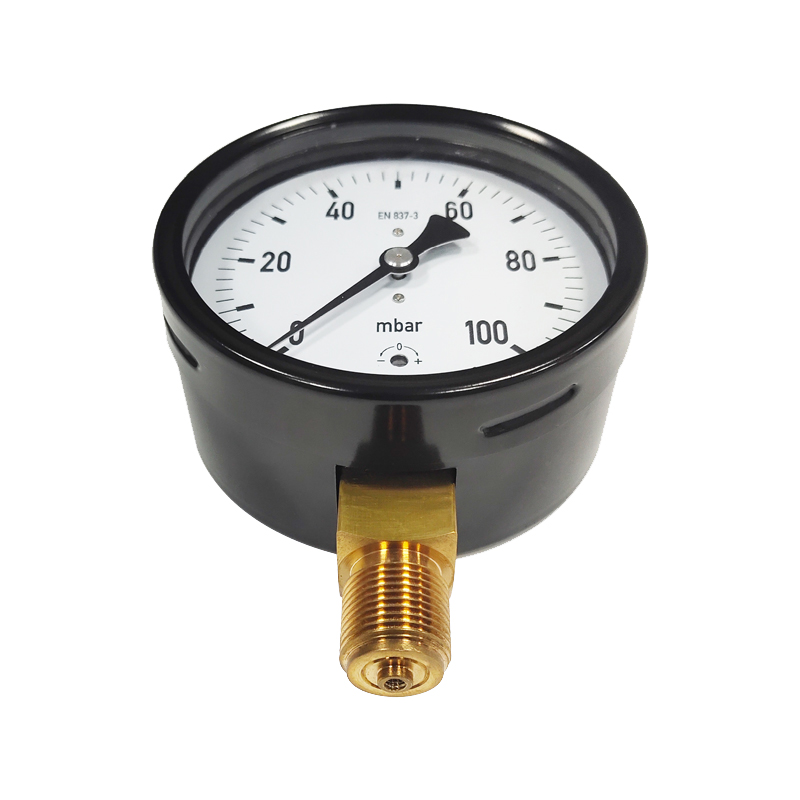
Nov . 09, 2024 17:05 Back to list
Leading Manufacturer of High-Precision Pressure Gauges for Industrial Applications
Precision Instrument Pressure Gauges A Comprehensive Overview
Precision instrument pressure gauges are integral components in a myriad of industries, ranging from manufacturing and aerospace to automotive and pharmaceuticals. These devices are specifically designed to measure the pressure of gases and liquids with a high degree of accuracy, ensuring safety, efficiency, and regulatory compliance in various applications.
The Importance of Precision in Measurement
Pressure measurement is a critical component in many operational processes. Accurate pressure readings are essential for monitoring and controlling systems to prevent catastrophic failures, optimize performance, and ensure safety standards are met. Precision instrument pressure gauges provide the reliability and accuracy required in tasks where pressure differentials can significantly impact outcomes.
Types of Precision Instrument Pressure Gauges
1. Bourdon Tube Gauges One of the most common types, Bourdon tube gauges use a curved tube that straightens as pressure increases. The movement is translated into a dial reading, making this design robust and reliable. These gauges are suitable for various applications, including liquid and gas measurement.
2. Diaphragm Gauges These gauges utilize a flexible diaphragm that deflects under pressure. The movement is measured and displayed, allowing for accurate readings even at lower pressures. Diaphragm gauges are often used in applications involving corrosive substances, as they can be designed with protective materials.
3. Digital Pressure Gauges Modern advancements have led to the development of digital pressure gauges that provide electronic readings. These gauges offer various features, including programmable alerts, connectivity options, and the ability to log data for analysis over time. Digital gauges are particularly beneficial in complex systems where precision and data logging are critical.
4. Capacitive and Strain Gauge Sensors These sensors provide highly accurate pressure measurements using advanced technology. Capacitive sensors measure changes in capacitance caused by pressure variations, while strain gauges measure deformation of a material under pressure. Both types are ideal for research and applications where extreme accuracy is paramount.
Features of High-Quality Pressure Gauges
To be classified as precision instruments, pressure gauges should meet certain quality standards and include features such as
precision instrument pressure gauges manufacturer

- Accuracy High-quality gauges must have a specified accuracy class, typically indicated as a percentage of full-scale reading. This factor is crucial for ensuring the measurements are reliable.
- Resolution The ability to detect small changes in pressure is important, especially in sensitive applications. High-resolution gauges can detect minute variations that may influence system performance.
- Calibration Regular calibration against known standards is essential to maintain accuracy and reliability over time. Manufacturers of precision gauges often provide calibration services to ensure compliance with industry standards.
- Durability Precision instruments must withstand the conditions of their operating environments. Factors such as temperature, vibration, and exposure to chemicals can affect performance. High-quality materials and design are essential for longevity.
Applications of Precision Instrument Pressure Gauges
The versatility of precision pressure gauges allows them to be used in a wide range of applications. In the manufacturing sector, they are critical for the operation of machinery and monitoring process controls. In the aerospace industry, they ensure proper functioning of hydraulic and pneumatic systems. The automotive sector relies on accurate pressure measurements for engine performance and fuel efficiency. Additionally, the pharmaceutical industry uses precision gauges to control processes that require strict adherence to pressure regulations.
Choosing the Right Manufacturer
Selecting a reputable manufacturer is crucial for acquiring reliable precision instrument pressure gauges. Factors to consider include the manufacturer's experience, range of products, adherence to industry standards, and availability of customer support and maintenance services. A good manufacturer will also offer guidance on the right type of gauge for specific applications and the best practices for maintaining accuracy and reliability.
Conclusion
Precision instrument pressure gauges play a vital role in numerous industries, contributing to the safe and efficient operation of various systems. With the availability of different types of gauges and advanced technology, businesses can achieve the high level of accuracy required in modern applications. By investing in quality pressure gauges and choosing reliable manufacturers, organizations can enhance their operational efficiency and ensure compliance with regulatory standards. The importance of precision in pressure measurement cannot be overstated—it's fundamental to the safety and success of any operation involving pressurized systems.
-
High-Quality Pressure Gauge on Fire Extinguisher - Reliable Water Fire Extinguisher Pressure Gauge Suppliers & Exporters
NewsJul.08,2025
-
High-Quality Water Pressure Differential and Gauge Kit Reliable Manufacturers & Competitive Quotes
NewsJul.08,2025
-
High-Precision Digital Diaphragm Pressure Gauge – Reliable Manufacturer & Competitive Quotes
NewsJul.07,2025
-
Wholesale Diaphragm Pressure Gauge Supplier - Premium Quality & Competitive Price
NewsJul.07,2025
-
Digital Diaphragm Pressure Gauge Reliable & Precise Measurement Top Manufacturers Quotes
NewsJul.06,2025
-
High Accuracy Piston Type Differential Pressure Gauge - Reliable Manufacturers & Competitive Quotes
NewsJul.06,2025
